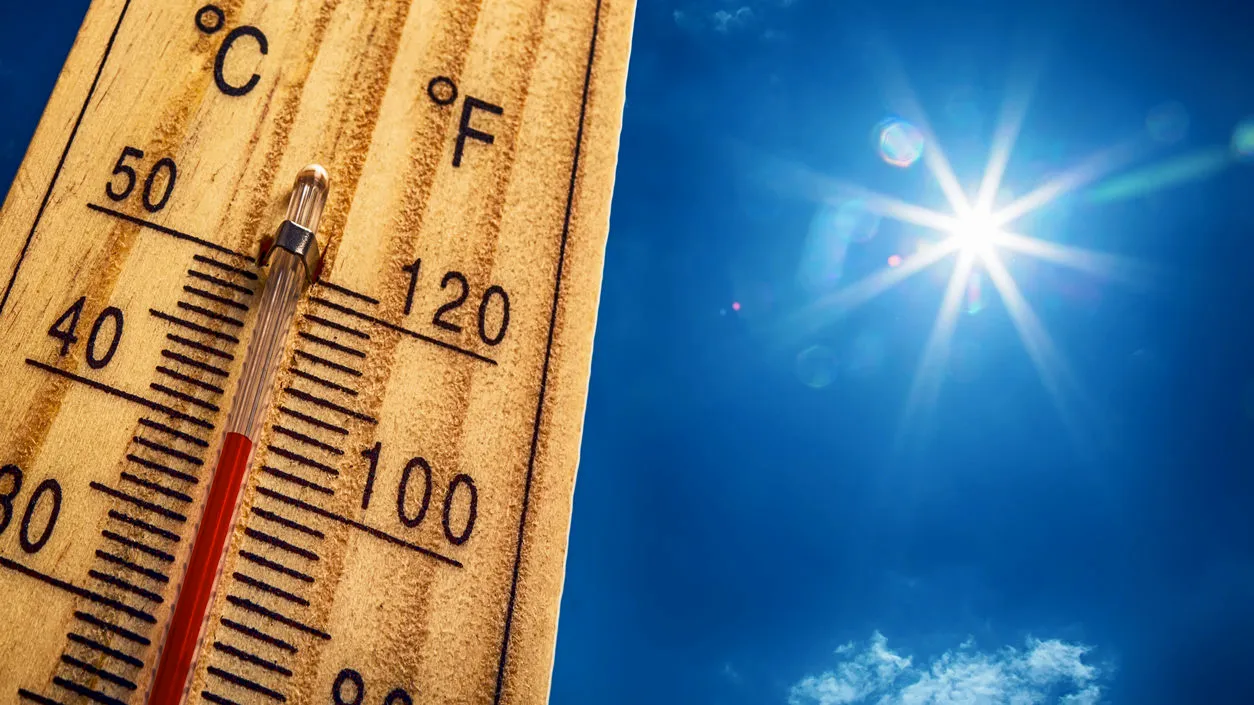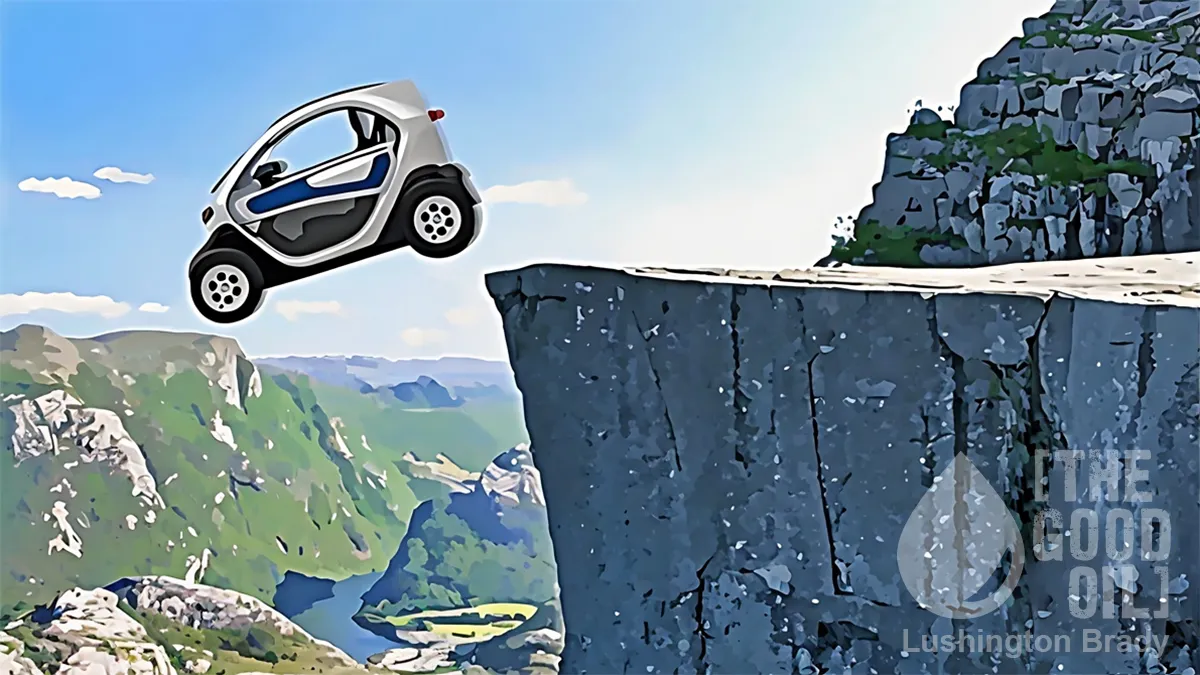Table of Contents
Dr Muriel Newman
Dr Muriel Newman established the New Zealand Centre for Political Research as a public policy think tank in 2005 after nine years as a Member of Parliament. A former Chamber of Commerce president, her background is in business and education.
On the last Friday of May, students from all over the country bunked school to support School Strike 4 Climate rallies. They called for “urgent action from central and regional governments to reduce climate change”.
The Aotearoa Liberation League supported the strike, claiming the crisis is caused by racism and disrespecting Maori culture: “Climate crisis isn’t a complicated issue, it’s as simple as society’s disrespect for Ranginui and Papatuanuku. If we resolve that disrespect and also the racism that underpins it, we’ll resolve not only climate crisis, but in fact all of our environmental issues.”
The demands of the student activists included: “Reduce emissions now – 50 per cent reduction in emissions by 2030; a 100 per cent transition to regenerative agriculture by 2030; Te Tiriti-centred climate justice; and lowering the voting age to 16 so today’s young people help put climate breakdown at the top of the political agenda.”
Translating those demands into real-world effects, they want to kill the economy, destroy traditional agriculture, promote Maori supremacy and lower the voting age to 16, so impressionable young people get to influence election outcomes.
What the strike clearly demonstrated is how climate change has now been captured by the political left.
There are signs, however, in some parts of the world, that the public are pushing back.
Two recent cases spring to mind.
Back in March in the US, when a Rasmussen survey asked voters, “Do you agree or disagree with this statement: Climate change has become a religion that ‘actually has nothing to do with the climate’ and is really about power and control?”, 60 per cent agreed.
In other words, three out of five US voters believe the climate change propaganda they are constantly bombarded with is about political power and control, not the climate.
A similar trend can be seen in Berlin, Germany. In April, climate activists suffered a devastating blow when their “Berlin Climate Neutrality By 2030” referendum was rejected by 82 per cent of voters – in spite of more than a million euros being spent on advertising and promotion.
If New Zealanders share the same sentiment, as is likely, then Labour’s Budget spend of $1.9 billion on climate change initiatives will be seen by many to be a colossal waste of money. In fact, public opposition to such things as subsidising electric cars for the wealthy – and paying a giant Australian corporation $140 million to consume electricity instead of coal – is growing strongly.
The irony is that while our Labour Green Government is cracking down on the use of coal – planning, in fact, to close down New Zealand’s only coal-fired power station – many other countries, including some in the European Union, are increasing their reliance on coal. In particular, China, which is already operating 1,118 coal-fired power stations is building another 240, while India, which has 285 plants, is constructing another 51.
What’s more, neither China nor India are considering taking steps to reduce greenhouse gas emissions until at least 2050 – if at all!
So, while countries like ours, which are clearly driven by climate fanatics in government, are crippling our economy in order to implement ideological UN mandates, China, India and others are putting practicality and the wellbeing of their people and their economy first, by increasing their output to fill the void. China has now overtaken Japan as the world’s leading electric car manufacturer – manufactured in plants fuelled by coal!
Fortunately, there are signs that a great global warming awakening is starting to emerge. The European Union has abandoned its planned ban on combustion-engine cars, and the G7 has refused to set a date for the elimination of coal from the bloc’s energy systems.
Even the so-called world authority, the United Nations International Panel on Climate Change, is having second thoughts about some of its overblown predictions, as we shall see.
When it comes to New Zealand, for decades we’ve been brow beaten with claims that our ‘clean and green’ country produces excessive emissions of greenhouse gases, with our world-beating farmers accused of being largely to blame.
The argument from the IPCC has always been that the methane produced by livestock digestion is more ‘dangerous’ than carbon dioxide by a factor of 28 – even though methane is part of a natural cycle that can be traced back to the dinosaurs.
However, it now turns out those climate change ‘experts’ were wrong, and that the actual figure for stable methane systems like ours is only a quarter of that – seven, not 28.
The IPCC admitted the mistake in their Sixth Assessment Report, explaining at page 1016 of Chapter 7, “…expressing methane emissions as CO2 equivalent of 28, overstates the effect on global surface temperature by a factor of 3-4”. But the mistake has never been officially corrected by New Zealand officials.
Instead, it is the false assumptions from the IPCC that continue to underpin the Labour Green Government’s Net Zero policy agenda. This has allowed them to impose the harshest methane restrictions of any country in the world on an industry that’s an international leader in efficient primary production.
Furthermore, this has been done in defiance of Article 2 of the UN’s Paris Agreement, which specifically prohibits governments from introducing policies that would restrict the supply of food: “This Agreement … aims to strengthen the global response to the threat of climate change … in a manner that does not threaten food production.”
This is not the only significant correction that’s recently been made by the IPCC. Two others also impact heavily on New Zealand: the first involves their claim that by 2100 the sea level will rise by over a metre, and the second is that by 2100, global temperatures could rise by up to five degrees Celsius.
The exaggerated sea level rise predictions originated in 2009, when the IPCC adopted a “very high greenhouse gas emissions” option – RCP8.5 – as one of four scenarios to predict climate outcomes.
It turns out that RCP8.5 is based on an ‘impossible scenario’ – that the whole world uses only coal for energy and transportation.
And it’s this ‘impossible scenario’ that’s being used by New Zealand’s climate agency NIWA to justify our “climate emergency” and predict a huge future sea level rise of over a metre by 2100. Their false assumptions are now being adopted by local councils in their planning documents, with serious consequences for homeowners.
The UN has now admitted the RCP8.5 scenario is so dangerously unrealistic that it’s been banished from all policy making. Even the Biden administration has abandoned it in the US.
The UN has also admitted their temperature predictions of up to five degrees warming by 2100 were also wrong: “According to the report from UN Climate Change released on 26 October 2022 the world is ‘on track for around 2.5 degrees Celsius of warming by the end of the century’. The UN’s announcement effectively concedes that there is no ‘climate emergency’. The extent of the risk is that global temperatures over the next 80 years are expected to rise at around the same barely perceptible average pace as the last 80 years – about 0.017°C per year.”
Time is proving what many have always known: The IPCC models are grossly unreliable. Based on false assumptions they have attempted to predict natural systems that are so volatile and complex, they are inherently unpredictable. A casualty in this is climate science, which has been captured by political ideology.
And this is where New Zealand has a real problem.
The UN’s inaccurate measures for methane, sea level rise and temperature increase still underpin the Labour-Green Government’s whole Zero Carbon legislative agenda, the Emissions Trading Scheme and the work of the Climate Commission.
What’s more, the Government has made no moves to correct these inaccuracies. Continuing with a regulatory climate framework that uses measures discredited by the IPCC must surely border on climate fraud.
At the very least, opposition politicians and the media should now be holding the Prime Minister and Climate Minister to account.
But while the IPCC has been dialling down the rhetoric and conceding there is no climate emergency, that’s not what the Green Party’s Climate Minister is claiming.
Climate researcher Ian Bradford is holding James Shaw to account for his absurd claim that Cyclone Gabrielle was caused by climate change: “Let me remind Mr Shaw of the NASA definition of climate change. ‘No weather by itself is evidence of climate change/global warming, as the test is whether the weather adds to a new weather pattern over many years or even millennia.’ A one-off event that does not keep repeating day after day is NOT climate. It is a weather event. Cyclone Gabrielle was a one-off event. It was a weather event.”
Ian also reveals that the Government has been able to ramp up climate change scaremongering by claiming today’s bad weather events are record breaking – because NIWA has not included the worst historic storms and cyclones in its database. According to Investigate Magazine’s Ian Wishart, “Gabrielle is being called a one-in-250 event by the media and climate scientists because they don’t realise that there was an even bigger one 155 years ago.” In fact, of 22 major weather events that took place over a 22-year period leading up to 1890, only four had been loaded into the NIWA research database – a massive 82 per cent were missing.
With the Labour-Green Government preoccupied with forcing everyone to switch to electricity, this week’s NZCPR guest commentator, energy expert Bryan Leyland, outlines the danger:
“The New Zealand government has committed to ‘net zero’ emissions of carbon by 2050. They seem to believe that wind and solar power can achieve this. In the real world a wind farm’s output often drops below 10 per cent of its installed capacity for days at a time. Solar power disappears completely every night and drops by 50 per cent or more during cloudy days.
“These plans have a single, fatal flaw: they are reliant on the pipe-dream that there is some low-cost large-scale technology that will store surplus electricity… Barring some sort of miracle, there is no possibility that a suitable storage technology will be developed in the needed time frame.
“Under net-zero plans, nations will need to generate many times more electricity than they now can to meet the increasing demand from electric cars and electric heating and the shutdown of many coal and gas fired stations. Power prices will soar, making most things more expensive, and there will be frequent blackouts.”
Bryan points out that Transpower has already advised the country will face blackouts this winter. That raises the question as to why the government is subsidising the switch from coal to electricity on such a massive scale. Is this yet another case of socialist ideology being blind to practical realities?
A critical question we should be asking Labour and the Greens is where their ‘net zero’ agenda is taking the country?
In the UK, Dr Benny Peiser of the Global Warming Policy Foundation has looked into this and explains, “The realities of Net Zero are hitting home for the general public. The threat that the project represents to livelihoods and liberties is becoming more evident by the day. Recently, the mathematician Norman Fenton tweeted an excerpt from a Government-funded report that set out what Net Zero UK might look like: no airports, no shipping, no beef and lamb to eat and most food imports eliminated. Sounds grim, doesn’t it? Lots of people thought so, and the tweet went viral, garnering over three million views.”
Dr Peiser also highlighted the threat of ‘15-minute cities’ to discourage car use and “programmable digital currencies, which would allow the authorities to dictate your purchases – ‘No beef for you this week’!”
Before our eyes, the climate change movement is morphing into totalitarianism.
Which leads to a crucial question: with the State intruding ever deeper into our private lives – now telling us to take only five-minute showers – will New Zealanders stand by and let them take more control, or, as a nation, will we too push back to defend our freedom and way of life?









